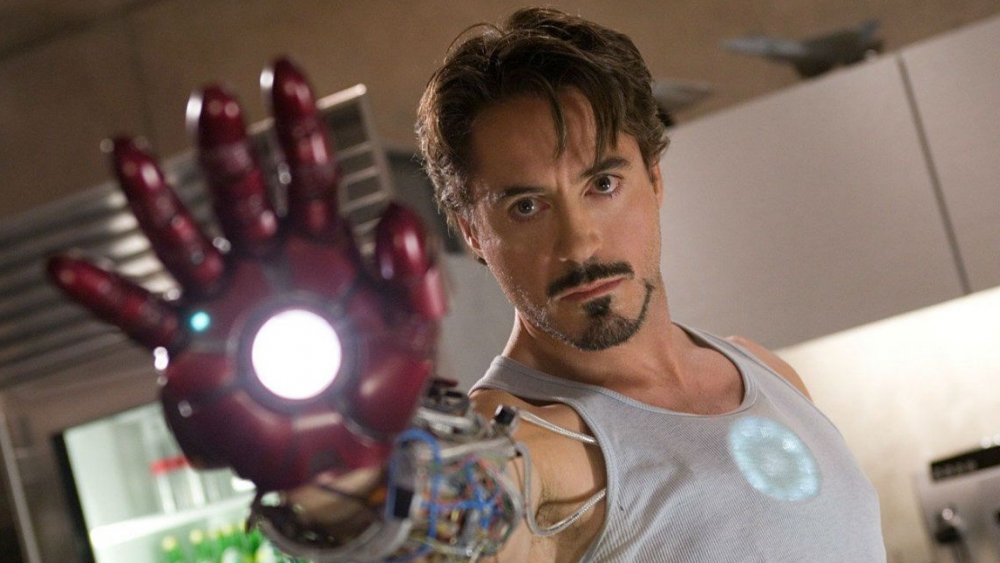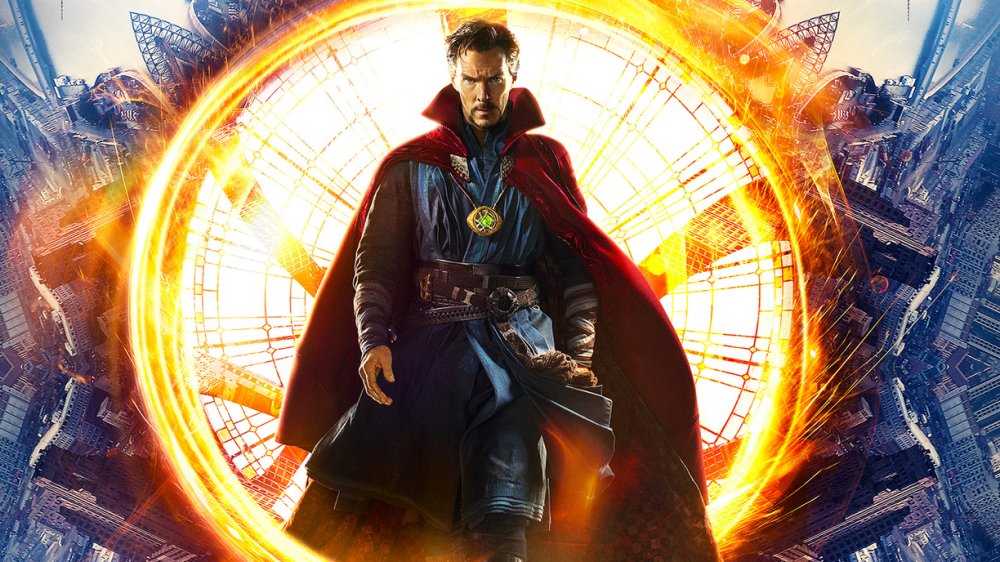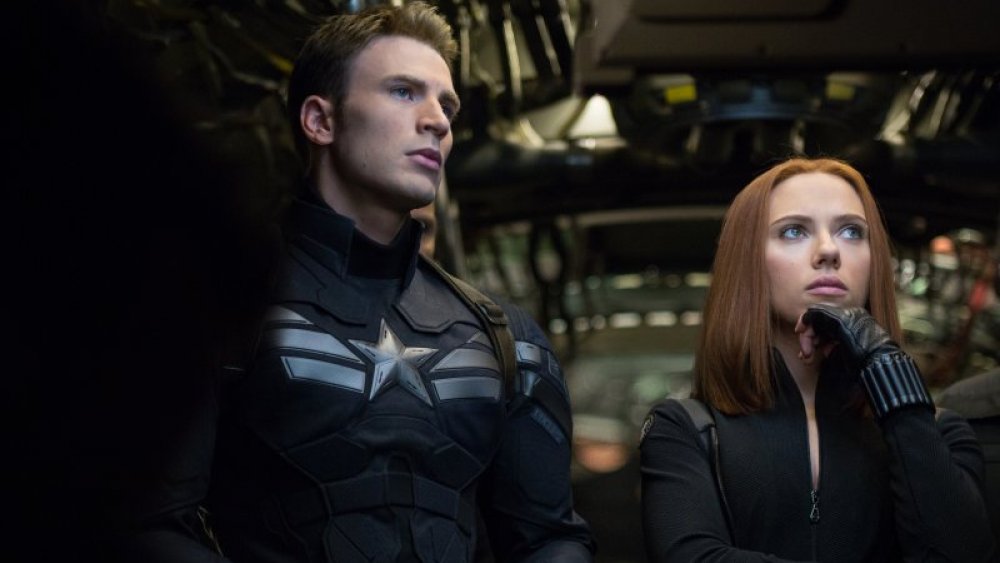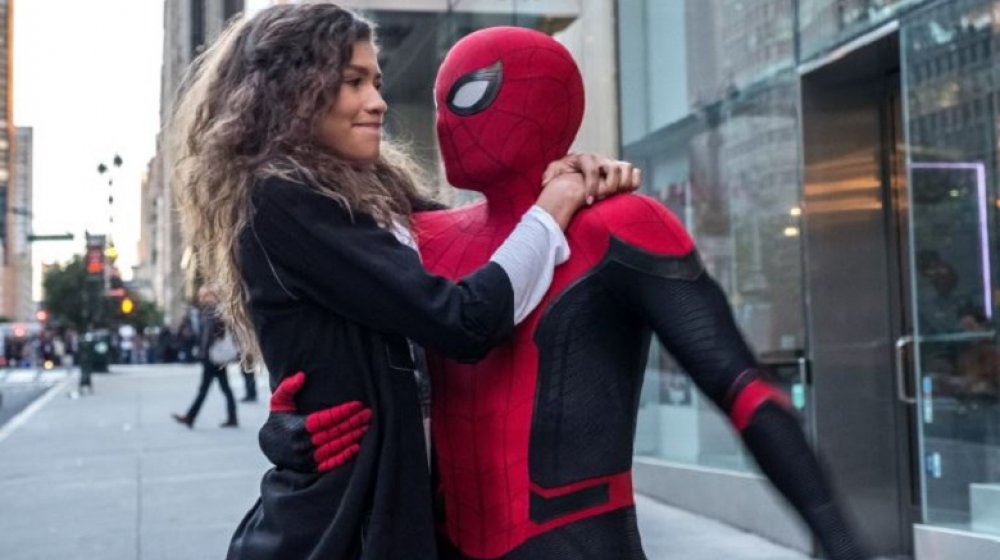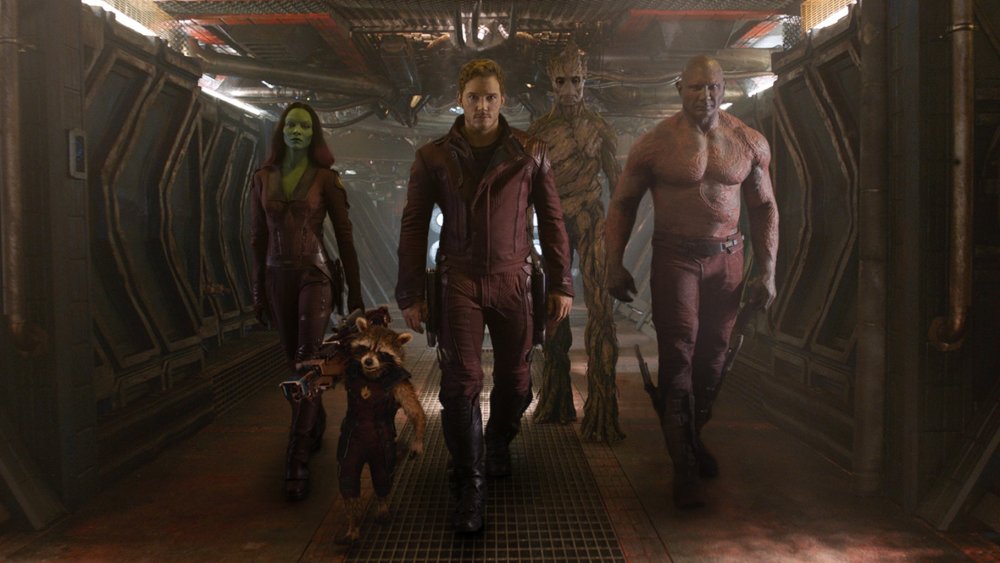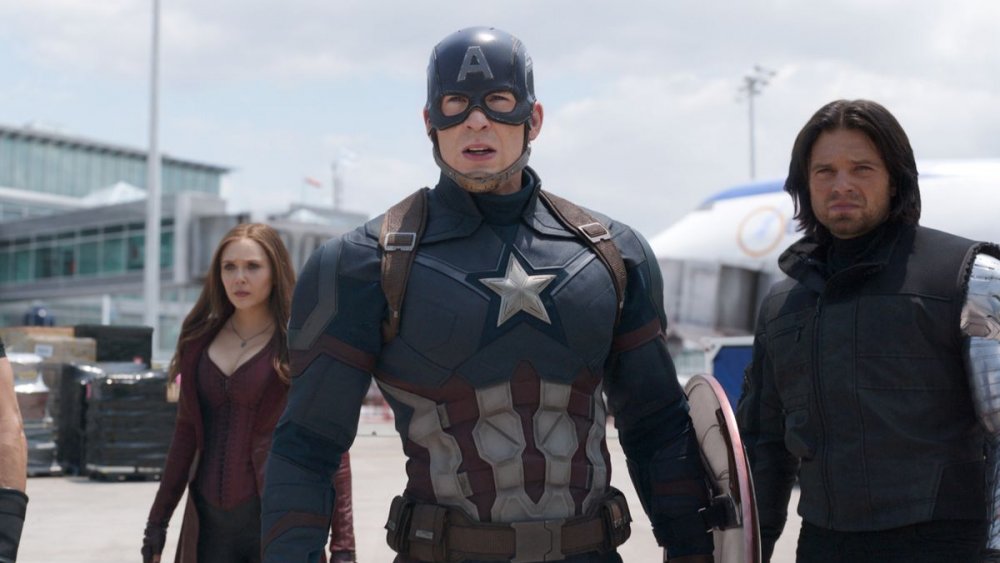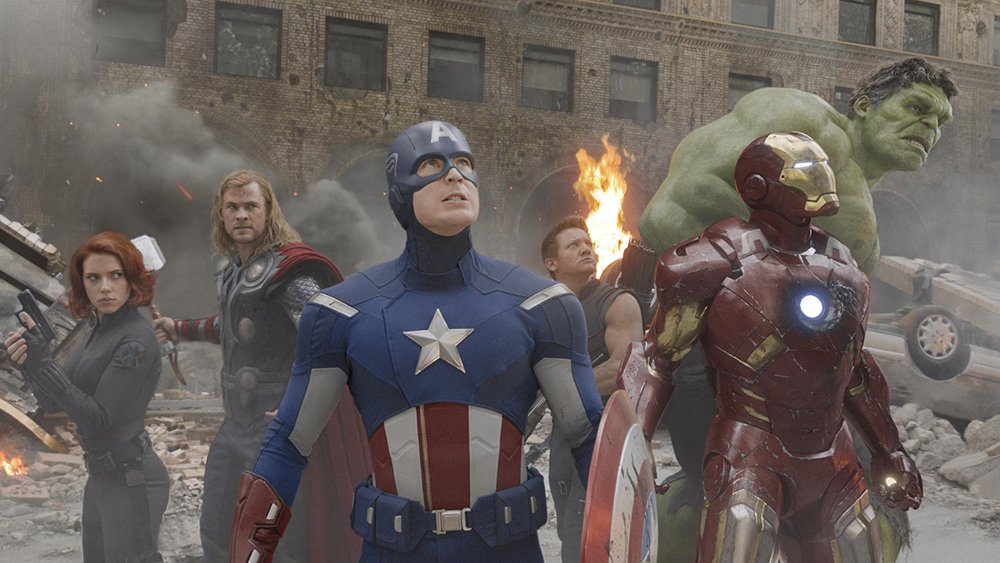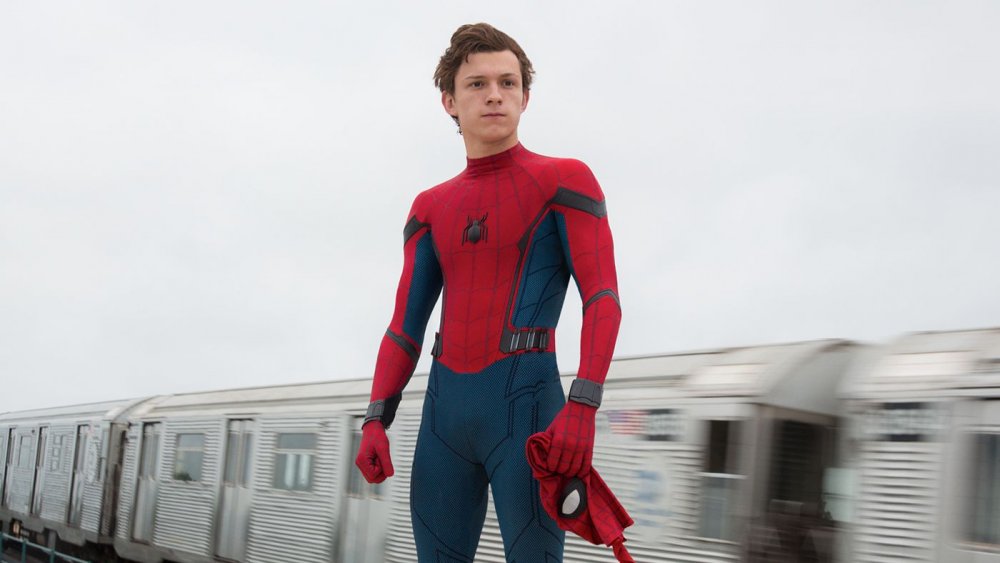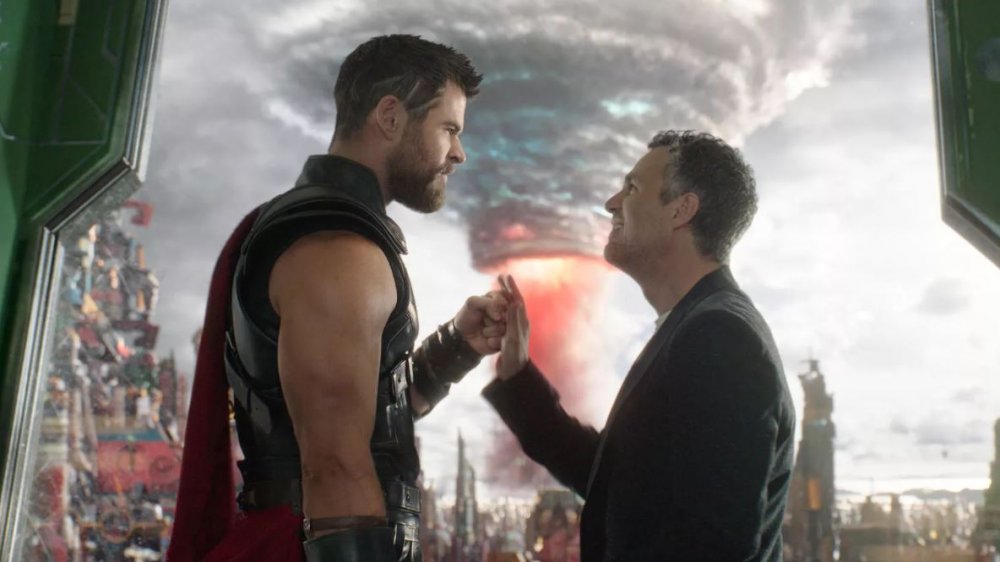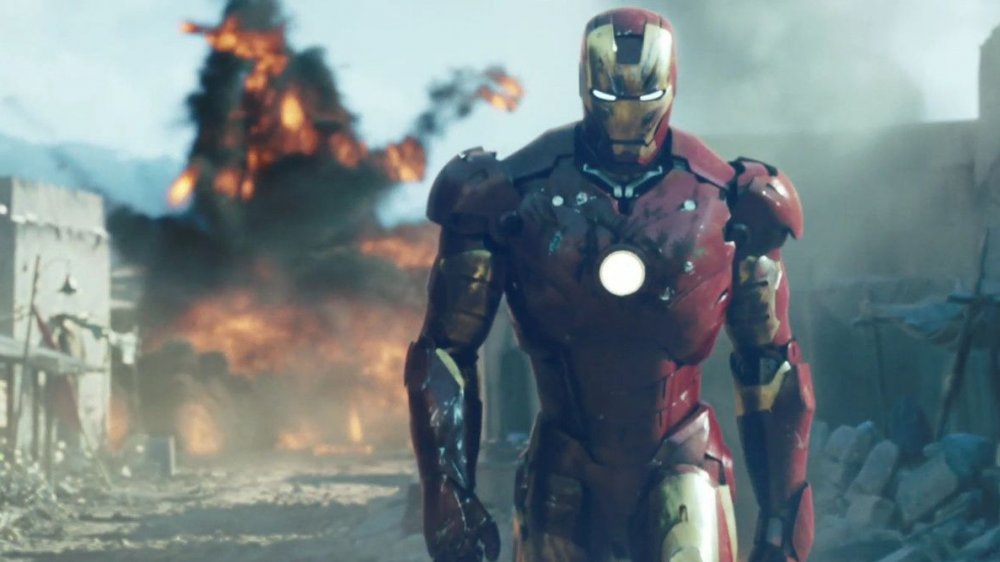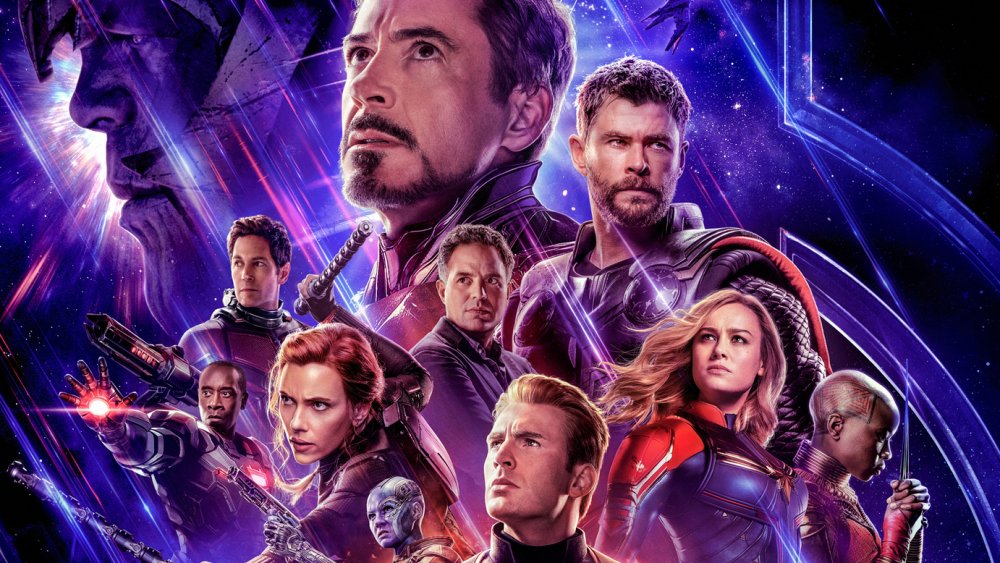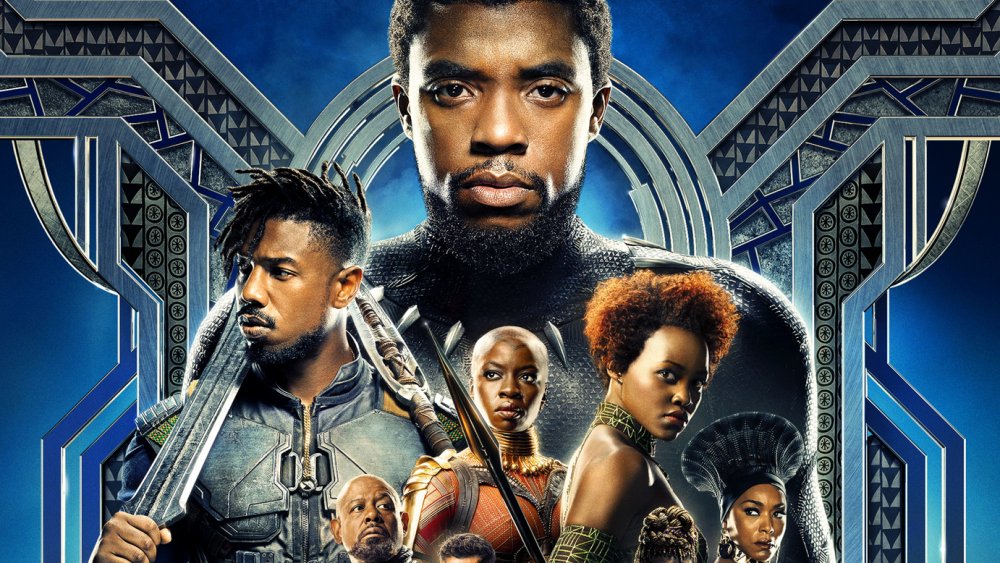The Best MCU Movies According To Rotten Tomatoes
The Marvel Cinematic Universe started small and simple, with 2008's Iron Man. From there, it ballooned into a titanic, multi-billion dollar box office empire that introduced us to the likes of Black Panther, Captain Marvel, and Star-Lord, while also forcing Marvel's competitors to scramble in an attempt to get it on the "cinematic universe" crazy. And so far, nobody has succeeded at anywhere near the same level, either at the box office or with critics.
Yeah, that's right, with the critics. Obviously, audiences love the MCU. Just look at all the cash these flicks have raked in. But these movies are so well-made that even critics adore the adventures of Captain America, Thor, and Iron Man. And Rotten Tomatoes has the receipts. So based off everybody's favorite review aggregator, which superhero is the most super? Which entry in this sprawling cinematic universe stands above the rest? Well, Marvel fans, assemble, because today we're looking at the best MCU movies according to Rotten Tomatoes.
Doctor Strange has a magical 89% on Rotten Tomatoes
By 2016, we'd seen armies of alien goons, magic space rocks, superheroes (duh), and political intrigue. But what we hadn't seen yet was straight-up ancient mysticism. Neither had Benedict Cumberbatch's Stephen Strange, an arrogant but brilliant surgeon who loses the use of his precious hands in a car accident and travels to an Asian monastery for treatment when his own failed experiments leave him destitute. There, he learns of the sorcerers, led by the Ancient One, who use the mystic arts to protect Earth from all manner of other-dimensional threats. It's a solid MCU outing, and we're definitely looking forward to the sequel, Doctor Strange in the Multiverse of Madness.
Granted, not everyone counts the movie as one of their all-time favorites, even if they like it, but what can't be denied is that Cumberbatch is simply wonderful in the starring role. He shows up frequently in other people's movies and is rarely not one of the best things in them. In Ragnarok, he trapped Loki in a falling dimension for several minutes and sent Thor tumbling down the stairs. In Infinity War and Endgame, he was a source of collected reason and leadership when cool heads and battle plans were needed most. And in his own solo film, he wonderfully mixed aristocratic snark with (by the end of the film, anyway) genuine empathy for others. Is it too much to ask for Strange to show up in every movie? Even if the universe doesn't need him that day, he's always a welcome presence.
Captain America: The Winter Soldier has heavy themes and a 90% approval rating
The MCU has heavily relied on science fiction and fantasy throughout its run, featuring space aliens, time travel, gods, mystical arts, and magic powers. Those flashy elements may seem like crutches for weak or immature storytelling to some (they're not), but look no further than 2014's Captain America: The Winter Soldier for proof that Disney's Marvel films were always capable of diving into the realm of grounded political thrillers without losing any of their edge or appeal. This film (again, from a franchise boldly featuring space monsters and caped heroes) can compete with (or arguably surpass) any Jack Reacher, Mission: Impossible, or Bourne film when it comes to espionage and intrigue, friendships and betrayals, and the ever-present threat of big government run amok with cash and power.
Maybe the movie works because, even though it has phenomenal action choreography and fun performances, it never relies on those things to the point that it loses touch with the character-based themes that always made Captain America such a draw. Namely, what is the nature of patriotism? At what point does patriotism, usually associated with some degree of government obedience, require us to rebel? Perhaps most importantly, to what should we be ultimately loyal — the government or our principles? The answers might seem obvious, but as Winter Soldier shows, doing the right thing isn't always easy. Luckily for us, it's hard to imagine a better man to show us the way than Steve Rogers. As evidenced by its mighty showing on the Tomato Meter, the critics were inspired.
Spider-Man: Far From Home snagged a 91% on Rotten Tomatoes
On the one hand, the popularity of the MCU following the record-smashing blockbuster that was Avengers: Endgame was at an all time high. On the other hand, it's hard to get people excited about a chapter of a story that takes place after what was, in effect, the climax. All our emotional investment was paid off in Endgame, and it would've been a fine conclusion to the whole franchise, even if certain characters still had some life and fight left in them. But the MCU has never shied away from doing what you're not supposed to be able to do. Far From Home came out a few months later and, as is always the case with Marvel, was a funny, heart-pounding good time that taught us a little something about the nature of courage and confidence, the way only Tom Holland's Spider-Man can.
They also had a winner on their hands with Jake Gyllenhaal's Mysterio, and they didn't take the obvious approach with him by making him an actual super-powered being. It might seem rather lame to have the hero pull the mask off the baddie at the end, exposing him as a fraud like the Wizard of Oz or any Scooby-Doo villain. But sticking with the comics (in which the character is a talented special effects artist) worked well here. After all, what is Mysterio if not a miserable fraud with too much time and money on his hands?
Guardians of the Galaxy danced its way to a 91%
By 2014, people had come around to the MCU's uncanny ability to popularize characters only die-hard comic fans would've cared about beforehand. But that was severely tested when Marvel announced Guardians of the Galaxy. We had at least heard of Captain America and the Hulk before their movies came out (and had maybe seen the um ... less than spectacular movies they'd been in before Disney bought the rights) but Guardians of the Who? Star-Lord? Drax? What is that, a talking raccoon whose best friend is a giant tree named ... Groot? Come on, Marvel.
But the results don't lie. Guardians wasn't just another breakout hit. When it came out, it was competing with Iron Man or The Avengers for the title of best MCU film. It was certainly the funniest, the wackiest, the zaniest, the most out-there tentpole blockbuster anyone had seen in some time. And, all these years later, it still has one of the most beloved and talked-about soundtracks ever. Those classic rock hits had been around for decades by the time the movie came out. But now whenever you hear "Hooked on a Feeling," you don't picture Bjorn Skifs singing it in 1973. You picture Chris Pratt dancing in an alien cave, swept away by the music of his troubled childhood on Earth as fully as he was swept away by space pirates following the death of his mother. Sound weird? It is. And that's why we love it.
With 91% on Rotten Tomatoes, Captain America: Civil War clearly didn't divide critics
"It was like watching your parents fight." That's what people who'd spent the eight years of the Marvel Cinematic Universe leading up to Civil War said. And it's a testament to the fantastic writing, development, and portrayal of the characters, all of whom found themselves at odds in the film over a proposed law that would've made the Avengers subordinate to the United Nations. To put it simply, Cap and his friends were against the law, citing the untrustworthiness of government. On the other hand, Tony and his friends were in favor, citing the collateral damage the Avengers had caused over the years and how a lack of accountability may have contributed, even if their intentions were pure. Thing is, they're both kind of right. And it was unfair and a little brilliant to ask their kids — us — to choose between them.
If there's one criticism we have about this storyline in particular, it's that it didn't end up having long-lasting consequences (since the existential threat posed by Thanos forced everyone to make nice real quick, and it wasn't really readdressed). But for the two-hour duration, it represented a new, more mature, more thought-provoking era for the MCU between all the shoot-outs. It was a movie that made you think about what you would do when faced with the reality that your heroics have hurt people, but it also confronted audiences with the truth that some questions demand easy answers that don't actually exist. What if the truth lies somewhere in the middle, between black and white, where nobody can reach?
The Avengers changed the game and earned a 92% rating with the critics
The first few MCU films — Iron Man, The Incredible Hulk, Thor, Iron Man 2, and Captain America: The First Avenger — had all beaten rather low-to-middling expectations. Money had been made. A successful sequel had proved sustained interest. Fans, frowning and nodding with raised eyebrows, were impressed. No easy feat. And ... the world looked to move on to the next thing. But the MCU wasn't done. They had plans for their hard-developed characters, of a scale unprecedented in the history of film. Yeah, we're talking about the team-up movie. They'd laid the groundwork in post-credit sequences featuring Samuel L. Jackson's Nick Fury recruiting our solo supers for something called "The Avengers Initiative," and now Marvel had to deliver. To say they did is an understatement.
The Avengers, about six heroes teaming up to stop an alien invasion led by Thor's bitter, adopted brother, Loki, was an unexpected knockout that grossed $1.5 billion worldwide. Sure, the action was great (boy, was it great). The set pieces were awe-inspiring (a floating aircraft carrier? Come on). But what made it work was the fact that the characters — and the actors portraying them — had tremendous chemistry brought to life by director Joss Whedon's sharp script. By the time the alien baddies had been beaten, something had begun to become clear. This team-up movie didn't feel like the end of an interesting little superhero excursion. Instead, it felt like — maybe, just maybe — the very beginning of something truly game-changing.
Spider-Man: Homecoming nabbed a 92% and proved Tom Holland was here to stay
Reboots are hard to nail, especially when you're trying to breathe new life into a superhero franchise. Take Spider-Man, for example. There had been two separate live-action Spideys before 2016, so audiences were wary of a third. But Andrew Garfield's Spider-Man movies had been a disappointment, and Disney, lacking an excuse to not include the Marvel character in their increasingly popular MCU, dipped their feet in the water by featuring him in the Russo brothers' Captain America: Civil War.
The response was electric.
People who'd groaned at the thought of yet another wall-crawler gracing the big screen were suddenly demanding to see more of this Tom Holland kid. He was perfect for the role, they said. And they were right. He merged Tobey Maguire's lovable dorkiness and Garfield's sarcastic cool into a Spider-Man truly worthy of the character's massive legacy. And 2017's Homecoming, which didn't bother with the classic origin story we all know by heart anyway, proved he could go the distance. It's up there with the best coming-of-age stories in recent memory. And in typical Marvel movie fashion, it refused to let itself be little more than an advertisement for the brand. Yes, Tony Stark is in it. The Avengers are always there, revered by Peter's high school classmates. But this is his movie, and he shines. Clearly, the critics agreed.
Thor: Ragnarok brought the laughs and left with a 93% critic score
After the somewhat disappointing first two Thor movies, often considered to be weaker than most MCU outings, it was clear something was ... off. It wasn't the fantastical elements that audiences weren't buying, because they loved those same things in Guardians of the Galaxy. It wasn't the action. There was no shortage of great bang for your buck, high-stakes fight scenes in those movies. And it wasn't the villain. Tom Hiddleston's Loki broke out of 2011's so-so Thor to become one of the most enduringly popular characters in the whole franchise, and The Dark World is far from the only Marvel movie with a forgettable baddie.
It wasn't the lead, either. Chris Hemsworth is good-looking and likable and even funny, when the movies allow him to be. It wasn't ... wait. Go back. Funny. That's what the first two flicks were missing, wasn't it? There were funny moments, but the movies themselves weren't comedies. What if they were? What if, like Guardians of the Galaxy, they simply leaned into the inherent ridiculousness of the God of Thunder and wore it on their sleeves? We imagine the conversation went somewhat like that, anyway, because Thor: Ragnarok, about the titular character's attempts to get home and save his people from his sister and a giant lava monster, is a laugh-a-minute riot that critics fell in love with. And no wonder. Writer-director Taika Waititi (What We Do in the Shadows, Jojo Rabbit) is to comedy what Jordan Peele has become to the horror genre: an unstoppable rising star.
Iron Man kicked off the MCU and earned a 94% rating on Rotten Tomatoes
At the beginning of 2008, Iron Man was a relatively obscure, D-list comic book character. Sure, we'd heard of him. Maybe. Guy in the red and yellow armor, right? But by the end of 2008, thanks to a career-defining, comeback performance from Robert Downey Jr. as the titular, smug billionaire turned mech-suit-wearing defender of the weak and innocent (easily one of the best casting decisions of all time), he was nearly a household name. But even that doesn't truly describe the impact this film had because nobody could've possibly guessed how huge the franchise Downey was about to carry on his shoulders (though not without help) would become over the course of the approaching decade.
The beginnings were rather humble, compared to the all-out cosmic brawl for the universe in Endgame, but if you trace it back to the origins, you'll see it's all there. Great action. Great jokes. A menacing villain in Jeff Bridges' Obadiah Stane (although nothing compared to the big bads from later films). But all those eye-popping explosions and cool fight scenes rested, rather simply, on a larger-than-life but flawed character whose decisions drove the drama of the story. In overcoming his own demons, Tony Stark finds the strength to save the world. It's simple, classic stuff that's too often overlooked by so many lesser blockbusters and cinematic universes. Character counts. And when you have a great one (maybe with a pair of rocket boots), the sky's the limit. Both critics and fans loved the film and have rewarded the franchise it launched with ocean loads of cold, hard cash.
Avengers: Endgame is an epic finale with a 94% approval rating
Lots of massively popular, big budget, multi-character franchises concluded in 2019. But only Avengers: Endgame did it right. Star Wars: The Rise of Skywalker fell prey to a much earlier decision to not plan the story out and instead rely on callbacks and nostalgia to distract people from weak storytelling. Game of Thrones used everything but the writing to make it across the finish line (fans didn't take the bait). The Russo brothers knew better. They knew that while action set pieces and special effects are great (perhaps even essential, depending on the film), they're worthless without a strong, character-driven story.
Infinity War gave us reason to hope for a strong conclusion by showing it was possible to give well over a dozen beloved characters enough to do without forcing it. But Endgame proved it was possible to give those same characters, who we'd spent the last 11 years getting to know like family, a proper conclusion to their respective, decade-long arcs. Banner learned to live with and appreciate his "demon." Thor learned to accept himself and his failings. Iron Man, who we'd met in 2008 as a self-interested playboy, made the ultimate sacrifice to save mankind. Steve Rogers, having done it all day for long enough, finally handed his iconic shield to a friend and retired. Not everyone is done forever, thankfully, but this film showed us all why good endings are so special: they define everything that came before.
With 97%, Black Panther is the highest-rated MCU movie on Rotten Tomatoes
And there it is. The best MCU film ever according to Rotten Tomatoes, and that's saying something. Black Panther did, or at least came very close to doing, what many suggested could never happen again after 2008's The Dark Knight. It transcended the genre and became more than just another big budget comic book movie. Instead, Panther was a cultural moment all by itself. It was a topic for dinner table discussion regarding its themes of race relations, fatherhood, destiny, family expectations, and the nature of revenge and justice. If that makes it sound thematically overstuffed, it wasn't. It was done tastefully and never neglected to break it up with masterful fight scenes and gorgeous, Afro-futuristic worldbuilding.
And then there was the antagonist. The MCU's problems with developing memorable villains (Loki and Thanos aside) have been well-documented. We certainly didn't need another CGI alien baddie hellbent on global domination. Director Ryan Coogler, who we hope to see much more of, knew that. He gave us not one but two — the always amazing Andy Serkis as Klaw and Michael B. Jordan's Killmomger, a villain for the ages who fancied himself a liberator for oppressed black people the world over. Even T'Challa understood that while Killmomger had to be stopped, he did have a point. Sometimes necessary victories aren't glorious at all. So, writers and storytellers out there, learn from Black Panther the same lesson Coogler had going in: If you want your villain to be memorable, make them right.
